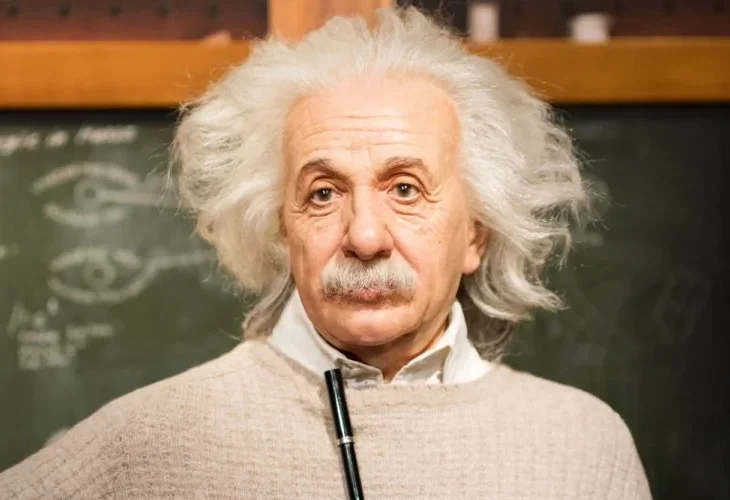In Search of God
Einstein and Faith: How Belief in God Shaped His Scientific Genius
How Albert Einstein’s spiritual worldview influenced his theories of relativity, his rejection of quantum randomness, and his vision of harmony between science and religion
 (Photo credit: Shutterstock)
(Photo credit: Shutterstock)Many writers have discussed the words and ideas of the most famous scientist of all time — Albert Einstein — regarding faith and seeing the Divine through creation. One of his close students, Max Jammer, took these reflections even further. Jammer argued that belief in a Creator didn’t only inspire Einstein emotionally, but it influenced the very core of his scientific theories.
Jammer summarized his findings in his well-known book “Einstein and Religion: Physics and Theology”. He wrote: “After examining the Einstein Archives at the National and University Library in Jerusalem and other sources, I soon realized that religion played a significant role in Einstein’s emotional and intellectual life.”
Einstein’s Early Spiritual Awakening
Einstein himself described how his spiritual sensitivity began in childhood: “When I was a fairly precocious young man, I discovered the futility of the hopes and ambitions that most men pursue so relentlessly throughout life. Moreover, I soon learned about the cruelty involved in that futile chase… The first escape from this whirlpool was religion, handed down to every child through traditional education. Thus, despite being the son of completely secular (Jewish) parents, I arrived at a deep religiosity.”
This early sense of wonder became a lifelong lens through which Einstein viewed both science and the universe.
Science and Religion: Two Paths to One Truth
Einstein never saw science and religion as opposites. On the contrary, he considered them complementary and mutually dependent — a relationship beautifully captured in his famous statement: “Science without religion is lame; religion without science is blind.”
In 1930, during a conversation with the Irish writer James Murphy and the mathematician John William Navin Sullivan, Einstein emphasized: “I maintain that the most profound hypotheses in science spring from a deep religious feeling. Without such a feeling, they would not be fruitful.”
For Einstein, scientific curiosity was not a rebellion against faith, but an extension of it.
The Jewish Roots of Einstein’s Scientific Thinking
According to Jammer, Einstein’s scientific method was shaped by Jewish theological thinking: “Einstein’s persistent opposition to the new quantum mechanics stemmed, at least in part, from religious motives. Certain physical ideas in the theory of relativity were influenced by religious considerations. Georg Shikmoni even claimed that Einstein’s famous mass-energy equivalence, expressed as E = mc², parallels a statement found in Jewish moral philosophy.”
This view suggests that Einstein’s search for universal order and moral coherence was rooted in a worldview where the cosmos reflected divine harmony — a distinctly Jewish idea.
“Talmudic Thinking” and the Relativity Revolution
Einstein’s critics in Germany accused him of bringing “Talmudic thinking” into science — and ironically, they may have been right. One detractor wrote: “The mode of thought expressed in Einstein’s theory is, when applied to other matters, called ‘Talmudic thinking.’ The purpose of the Talmud is to indirectly realize the concepts of the Torah — the biblical system of law — through refined definitions and a highly formal method of interpretation and application.”
What was intended as an insult, highlighted the rigorous analytical style of Einstein’s mind — a style deeply connected to the Jewish intellectual tradition of questioning, refining, and seeking deeper unity behind apparent contradictions.
A Legacy of Faith-Infused Curiosity
Whether or not one accepts Jammer’s conclusions, it’s clear that Einstein’s genius cannot be separated from his spiritual intuition. His sense of wonder, his belief in universal order, and his moral reverence for truth all echo the same faith that guided generations of Jewish thinkers before him.
Einstein’s journey illustrates that science and faith need not compete — they can illuminate each other. His life remains a testament to the idea that behind the equations and theories lies something even greater: a mysterious, ordered, and meaningful universe, whispering the presence of its Creator.

